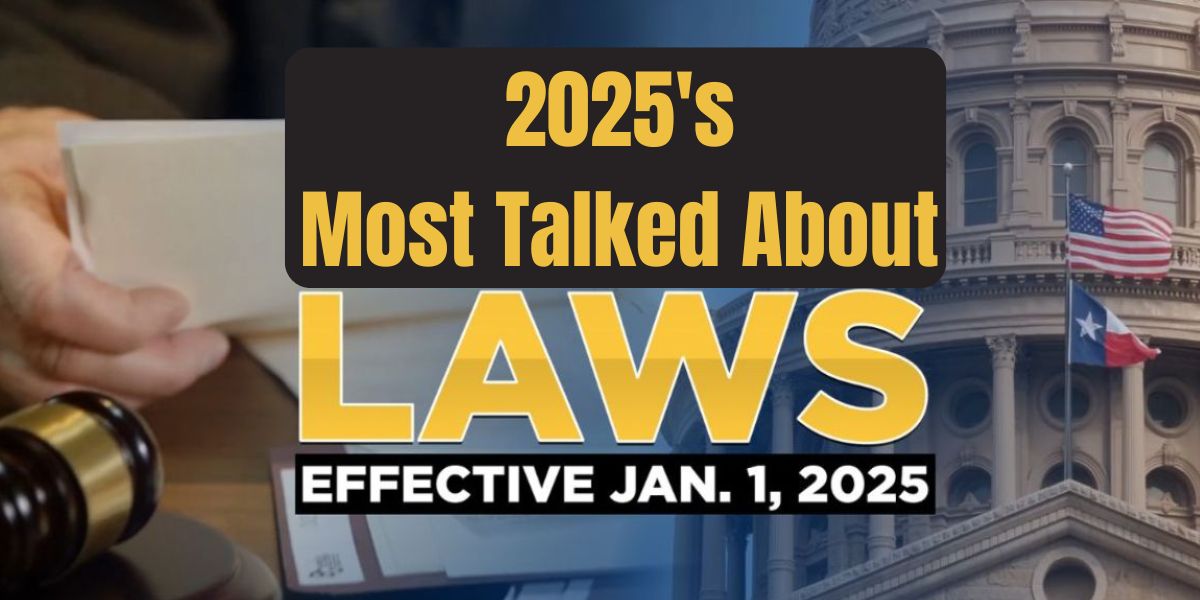WPBN: States across are preparing for new legislation, some of which have sparked controversy, to go into force as early as Wednesday.
A new law in Louisiana mandates all public schools, including colleges and universities, display the Ten Commandments. In the midst of a litigation, some jurisdictions won’t have to enforce it.
In the meanwhile, after one city enacted its own voter ID law, California approved legislation prohibiting municipalities from requiring voter ID during elections.
Here are five contentious laws that will take effect in 2025:
Louisiana schools’ Ten Commandments
In June, legislation mandating the Ten Commandments to be posted in public classrooms was signed by Louisiana Governor Jeff Landry (R).
It must “be displayed on a poster or framed document that is at least eleven inches by fourteen inches,” according to the legislation. The Ten Commandments’ content “must be the main focus of the poster or framed document and shall be printed in a large, easily readable font,” the law further states.
After putting the bill into law earlier that month, Landry wrote on the social media site X, “I think this is a step in the right direction to restore morals and values for current and future generations in Louisiana.”
However, a number of civil rights organizations filed a lawsuit to block the law’s implementation, which caused the legislation to stall. As the dispute progresses through the legal system, a federal judge in November temporarily stopped the statute.
In a separate statement later, Louisiana Attorney General Liz Murrill (R) stated that “the injunction does not bind schools who are not parties to that litigation,” although she had previously stated in a statement on X that she would be issuing clarification regarding the legislation in light of the pending litigation.

Voter ID laws in California
This past summer, California approved legislation prohibiting communities from requiring voters to provide identification in order to cast their ballots.
The bill text, introduced by California state senator and Rep.-elect Dave Min (D), states that “unless required by state or federal law, a local government shall not enact or enforce any charter provision, ordinance, or regulation requiring a person to present identification for the purpose of voting or submitting a ballot at any polling place, vote center, or other location where ballots are cast or submitted.”
Voters in Huntington Beach approved a charter amendment bill earlier this year that would have permitted the city to require voter identification during elections, which paved the way for the passage of the legislation. The action was taken in the midst of a larger dispute between the two parties over what supplies voters ought to have at the polling station.
The proposal, which would go into effect in 2026, would also enable vote drop boxes to be monitored and expand the number of venues for in-person voting.
There was uncertainty about whether a California law that already existed, which states that it is unlawful to engage in “mass, indiscriminate, and groundless challenging of voters solely for the purpose of preventing voters from voting or to delay the process of voting,” applied to local jurisdictions, according to a blog post by the law firm Perkins Coie.
In April, Min stated that the goal of his legislation was to clear up any misunderstandings regarding state law.
A municipal court dismissed a lawsuit filed by California officials against Huntington Beach to prevent the implementation of the charter amendment measure. Both California Secretary of State Shirley Weber (D) and California Attorney General Rob Bonta (D) have promised to file an appeal.
New California Law Raises Dollar Limit on Home Projects You Can Do Without a Licensed Contractor
Gender-affirming surgery for minors in New Hampshire
Starting Wednesday, gender-affirming surgery for children will be prohibited at Granite State.

However, the law does not apply to “male circumcision,” “reconstructive surgeries on the genitalia of minors to correct malformation, malignancy, injury or physical disease,” “removal of malignant, malformed, or otherwise damaged genitalia,” “genital surgeries on minors with disorders of sex development,” or “removal of malignant, malformed, or otherwise damaged genitalia.”
Physicians who refer patients for a gender-affirming treatment may potentially face disciplinary action.
In a statement following his signing of the law in July, Governor Chris Sununu (R) remarked, “This bill has earned bipartisan support and focuses on protecting the health and safety of New Hampshire’s children.” Countries all across the world, including Sweden, Norway, France, and the United Kingdom, have taken action to halt these practices and policies for a cause.
Issues with transgender women participating in women’s sports and gender-affirming surgeries for transgender people have fueled controversy in recent years, despite the fact that these treatments for youngsters are said to be uncommon.
Illinois Department of Human Rights Extends Deadlines for Discrimination Cases in 2025
Vehicle safety tests in Texas
Legislation that takes effect on Wednesday would exempt noncommercial vehicles in Texas from having to pass an annual safety inspection exam.
For two years, Texans are still have to pay a $7.50 annual safety inspection fee, or $16.75 for drivers registering their vehicles for the first time. The “Inspection Program Replacement Fee” is the new name for the cost.
Emissions testing will still be required in some counties.
According to a 2023 statement made by state representative Cody Harris (R), the bill’s sponsor, “Texans are responsible, fiercely independent, and I trust them to keep their cars and trucks safe while on the road.”
However, certain law enforcement agencies and other groups, such as the Texas State Inspection Association, oppose the new rule, arguing that it could increase driving risks.
Changes in 2025: New Minnesota Law Will Cover Wig Costs for Some Residents Through Insurance
New Hampshire employer-owned firearms
Legislation that will go into effect on Wednesday will permit employees in New Hampshire to carry weapons on their employer’s property as long as they are securely locked and stored in their cars.
“An employer or an agent of an employer may not prohibit an employee who may legally possess a firearm from storing a firearm or ammunition in the employee’s vehicle while entering or exiting the employer’s property or while the vehicle is parked on the employer’s property as long as the vehicle is locked and the firearm or ammunition is not visible,” according to the bill text.
“An employer or agent of an employer is prohibited from requiring an employee to disclose whether or not the employee is storing a firearm or ammunition in the employee’s vehicle, and no searches of the employee’s vehicle for a firearm or ammunition may be undertaken except by a law enforcement officer pursuant to a warrant or pursuant to a recognized exception to the warrant requirement,” the text further added.








Leave a Reply